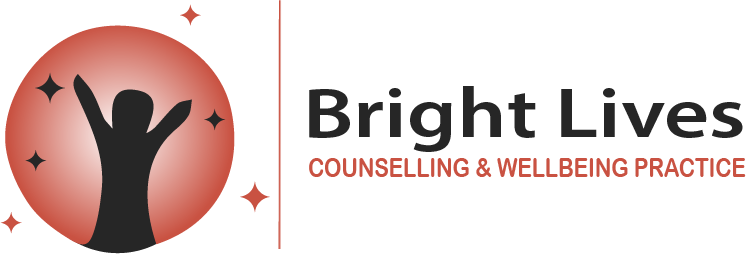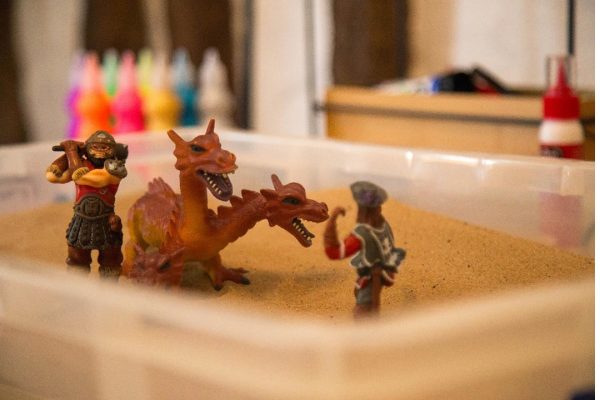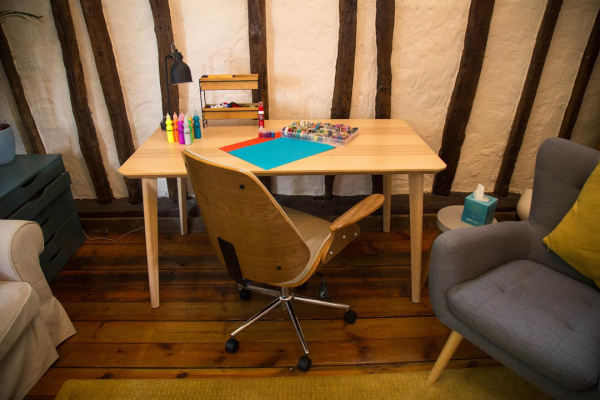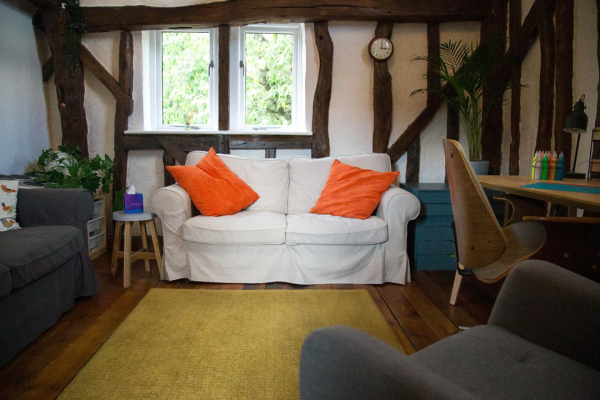What is counselling?
Counselling is like having a trusted friend to talk to when you are feeling sad, angry or upset. This friend is called a counsellor or therapist. Imagine walking into a cozy room filled with toys, books, and art. That’s what counselling is like – a place where you get to play, read, and express yourself freely and this can help you to understand, name and manage your big feelings.
What happens in counselling?
During counselling, you’ll visit my playroom once a week. You’ll get to choose toys to play with, draw and paint, and even read books. It’s a time just for you to have fun and talk if you want to.
How can counselling help me?
Counsellors help you understand your feelings by playing and drawing together. It’s like solving a puzzle—figuring out how you feel helps you feel better and happier.
Do I have to come on my own?
You can choose whether to come on your own, or whether to bring a parent or carer into the playroom with you.




